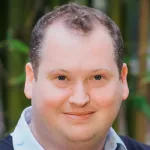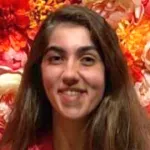
Dr. Thomas Markland focuses on problems at the interface of quantum mechanics and statistical mechanics, with applications ranging from chemistry and biology to geology and materials science. The Markland Group's research frequently explores theories of hydrogen bonding, the interplay between structure and dynamics, systems with multiple time and length-scales, and quantum mechanical effects. Particular current interests include proton and electron transfer in materials and enzymatic systems, atmospheric isotope separation, and the control of catalytic chemical reactivity in heterogeneous environments.
Thomas E. Markland studied chemistry at Balliol College, University of Oxford (MChem 2006), where as a Brackenbury Scholar he performed thesis work in the area of non-adiabatic dynamics. He continued at Oxford (D.Phil. 2009), working in quantum dynamics under the supervision of Professor David Manolopoulos. Together, the two developed an approach to allow quantum effects of nuclei to be included in condensed phase simulation at near classical computational cost, as well as elucidating isotope effects observed in liquids. Next, during postdoctoral work with Bruce Berne at Columbia University, Professor Markland focused on structure and dynamics in classical and quantum biophysical systems. He moved to Stanford in 2011 as an Assistant Professor in the Department of Chemistry. He has received recognition in a number of awards, including the Stanford Dean's Award for Distinguished Teaching, Cottrell Scholarship, ACS OpenEye Outstanding Junior Faculty Award, and Alfred P. Sloan Research Fellowship.
In broad terms, current research in the Markland Group lies in the application and development of theoretical methods to model condensed phase systems, with a particular emphasis on the role of quantum mechanical effects. Treatment of these problems requires a range of theoretical approaches as well as molecular mechanics and ab initio simulations. Lab members are particularly interested in developing and applying methods based on the path integral formulation of quantum mechanics to include quantum fluctuations such as zero-point energy and tunneling in the dynamics of reactive condensed phase systems. The group has also developed methods to treat non-equilibrium excited state dynamics by exploiting the combination of quantum-classical theory and quantum master equation approaches.
Work in the Markland Group has already provided insights into several systems, including reactions in liquids and enzymes, and the quantum liquid–glass transition. Group members have also introduced methods to perform path integral calculations at near classical computational cost, expanding our ability to treat large-scale condensed phase systems.

